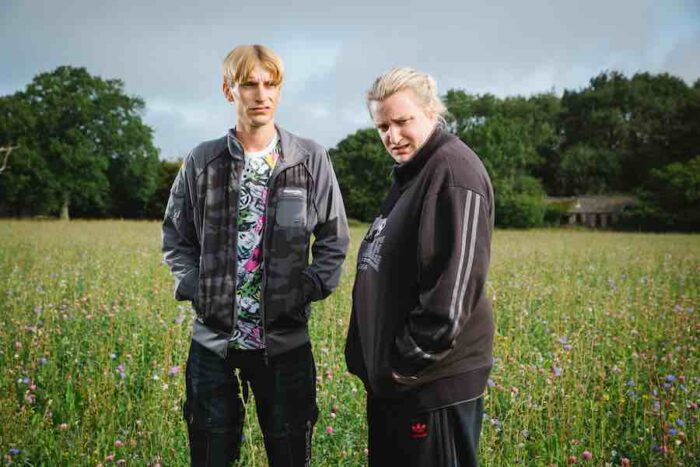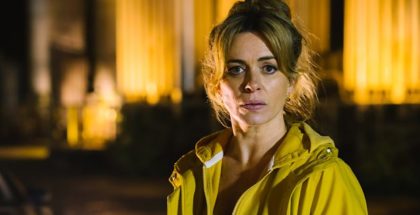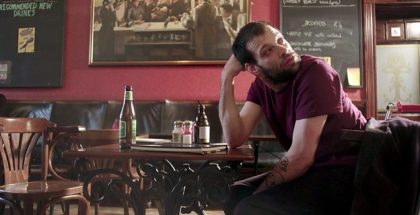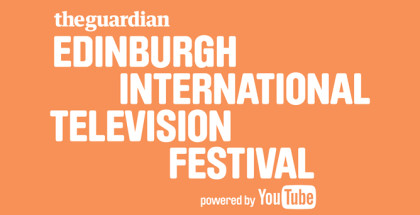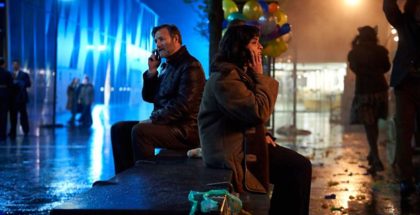BBC Three: Top box sets and original shows
David Farnor | On 12, Jun 2022
In February 2016, BBC Three became the UK’s first online TV channel. In February 2022, it jumped back to being a linear TV channel. The one thing that hasn’t changed? It remains a vital launchpad of homegrown talent, as well as a showcase of international comedy and drama tackling issues that resonate with the world today. For regular updates of what’s on, see our guide to what’s coming soon to BBC Three.
Whether you’re looking for a fresh favourite to binge or a classic from the BBC Three archives to catch up with, BBC Three’s home on BBC iPlayer boasts an impressive line-up of new and old gems. Here’s our quick guide to the very best box sets currently on BBC Three:
Starstruck: Season 1 to 2
Rose Matafeo is on winning form in this charming, enjoyable and highly bingeable rom-com. Read our review
Conversations with Friends: Season 1
This skilful portrait of four flawed characters all sheltering their true emotions is a meaningful exploration of modern love. Read our review
People Just Do Nothing: Season 1 to 5
Awkward, smart, silly and sincere, People Just Do Nothing is a laugh-out-loud TV gem. Read our beginner’s guide to the show.
Thirteen: Season 1
BBC Three’s first online drama follows Ivy Moxam, a young girl who escapes from the cellar where she has been held captive for the last 13 years. Marnie Dickens’ gripping script expertly weaves together the police hunt for the kidnapper with the family fallout following Ivy’s unexpected return home, while star Jodie Comer is captivating to watch, full of wide-eyed terror one minute and calculating silence the next.
In the Flesh: Season 1
“You get bitten. You come back. We’ve seen it in the films. That’s how it works.” That’s one of the residents in Roarton, Lancashire, a town where the dead have started coming back to life. Dominic Mitchell’s zombie drama is driven not by unanswered questions, but unresolved feelings, and the result is a touching study of romance in the face of prejudice – think EastEnders remade by Romero. Read our full review
Glow Up: Season 4
BBC Three has invested heavily in competition series and this might be its best to date, as make-up artists compete against each other, overseen by Maya Jama (and by Stacey Dooley in earlier seasons), to prove their brushwork is above average. Entertaining and often visually stunning, it’s a fun way to get some inspo for your next look.
RuPaul’s Drag Race UK: Season 1 to 3
Witty, fabulous, and very, very British. That’s how we described RuPaul’s expansion of his franchise for UK viewers, with Graham Norton and Alan Carr proving a natural fit for the show’s guest judging panel. It’s since returned for three glamorous seasons, even kicking off Drag Race UK vs the World – and led to BBC Three bagging the rights to Canada’s Drag Race and Drag Race Down Under. In short, if you want your RuPaul fix, shantay you stay on BBC Three, hun. Read our full review
We Are Who We Are: Season 1
Director Luca Guadagnino’s first foray into television is something of a triumph, losing neither his renowned aesthetic nor his sensitive characterisation in the translation to the small screen. This eight-part series, set in an American military base near Chioggia, Italy, in the run-up to Trump’s win in the 2016 election, follows the lives of some of the teenagers shored up there, in this very particular time and space. Read our full review
Twenties: Season 1 to 2
From Fleabag through to Shrill, Lena Waithe’s new series Twenties fits nicely into a growing portfolio of millennial comedy-drama. Based on a 2013 semi-autobiographical web series, the programme follows Hattie (Jonica T. Gibbs), who, along with her friends Marie (Christina Elmore) and Nia (Gabrielle Graham) are navigating life in their 20s. Read our full review
Shrill: Season 1 to 3
Top-notch writing and a glorious lead turn make this body-positive comedy a sensitive, bittersweet, funny treat. Read our full review
The Young Offenders: Season 1 to 3
Endearing, sweet and silly, BBC Three’s Irish comedy series – based on the film of the same name – is criminally funny. Read our full review
Jerk: Season 1 to 2
Unique, sweet and gleefully dark, this sitcom about Tim (Tim Renkow), a young man with cerebral palsy trying to get through life in a world where everyone treats him differently is one of BBC Three’s best comedy commissions to date. Read our full review
Fleabag: Season 1 to 2
Phoebe Waller-Bridge’s comedy is as brilliant, candid, rude and funny as you’d expect. Read our review.
Famalam: Season 1 to 3
BBC Three’s hilarious sketch show is a non-stop barrage of laughs and memorable characters. Read our review.
This Country: Season 1 to 3
BBC Three’s hilariously daft and quietly sweet mockumentary is one of its most charming shows to date. Read our review.
Him & Her: Season 1 to 3
If you liked BBC comedy Mum, then you should hook up with Him & Her, the BBC Three sitcom that creator Stefan Golaszewski gave us earlier in his career – and which also deftly juggles sentiment with a spiky edge. Starring Russell Tovey and Sarah Solemani, the sitcom follows a couple in their flat and… that’s about it. They don’t do much each episode, but their chemistry is a hilarious, adorable joy – they’re one of the most natural screen partnerships in modern TV.
Pls Like: Season 1 to 3
BBC Three’s short-form comedy, starring Liam Williams, is a dark, funny comedy that deftly mirrors the world of vlogging the series so successfully satirises.
Murder in Successville: Season 1 to 3
This hilarious improv crime comedy series, which sees celebrity guests join Tom Davis’ gruff detective to solve a fake murder, is one of the most inventive things on TV. Read our review
Ladhood: Season 1 to 2
Liam Williams, probably best known to BBC Three viewers for his astute influencer satire Pls Like, brings us this adaptation of his Radio 4 series, which wryly documents his formative years in Garforth, Leeds. Read our review
The Mighty Boosh: Season 1 to 3
“Come with us now on a journey through time and space…” It’s been over 10 years since The Mighty Boosh first arrived on BBC Three in the middle of the night. Now, the misadventures of zookeepers Howard Moon and Vince Noir are available to watch whenever you like. Noel Fielding and Julian Barratt’s series is full of ingenuity and wit, both visual and verbal. While later seasons saw the show lose some of its charm, with the odd dubious note, this surreal, silly oddity is as amusing as it is influential.
Gavin & Stacey: Season 1 to 3
Created and written by Ruth Jones and James Corden, this 2007 sitcom follows Gavin (Mathew Horne), an ordinary boy from Essex in England, and Stacey (Joanna Page), an ordinary girl from Barry in Wales. The show’s staying power tells you everything you need to know about how beloved and charming the end result was.
Bodies: Season 1 to 2
Jed Mercurio’s shocking medical drama is gripping, urgent and not for the faint-hearted – unmissable TV that can’t be unseen. Read our review
Class: Season 1
In September 2016, Doctor Who fans were about two-thirds of the way through a year-long hiatus between Christmas specials. At that point, along came Patrick Ness’ spin-off set in Coal Hill School in London. It follows a group of young misfits who have been deputised by the Doctor (Peter Capaldi) to fight off any alien threats that emerge through a localised fracture in time and space. Cancelled after one season, the result is a missed opportunity but it’s a shame that Class didn’t get the chance to develop into a more rounded show, because its breakneck pace and earnestness still feels distinct. Read our reviews
The Fades: Season 1
“They are the dead and they’re trapped here. When people die, they go up or stay here. Those that stay here, we call them the Fades… ” Jack Thorne took the grimy realism of Skins and This Is England to make this supernatural, tense drama, featuring a breakout turn from Daniel Kaluuya. Another gem sadly cancelled after one season. Read our full review
15 Storeys High: Season 1
The late, great Sean Lock gets a deserved leading man showcase in this sitcom from the early 2000s, which starred him and Benedict Wong as Vince and his flatmate Errol. Their double act is reason alone to tune in, thanks to Wong’s optimistic innocence clashing with Lock’s dark, surreal, sarcastic wit. But it’s Lock’s script through and through, full of his signature deadpan observations that repeatedly raise a chuckle.


